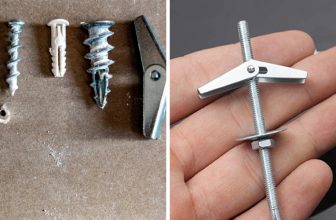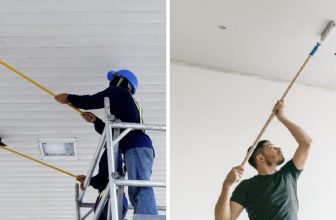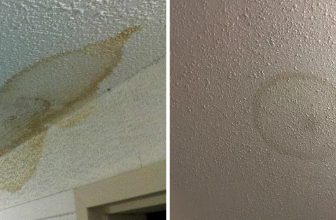How to Reduce Noise in Basement Ceiling
Do you ever get frustrated by the loud noises coming from your basement? Don’t worry, you’re not alone! With so many everyday activities going on in a home – like running appliances, TV and radio shows playing, and kids getting noisy – it can be hard to keep the peace and quiet. But with the right tricks and tools, reducing noise in your basement ceiling might just be easier than you think. In this article, we’ll discuss easy and effective ways to create soundproofing for your basement without breaking the bank or spending too much time on renovations.
Whether you rent or own the property, there are creative yet effective solutions available that will immediately help combat any intrusive sounds coming through the floorboards. Keep reading to learn all about how to reduce noise in basement ceiling by introducing noise reduction strategies in your next DIY project!
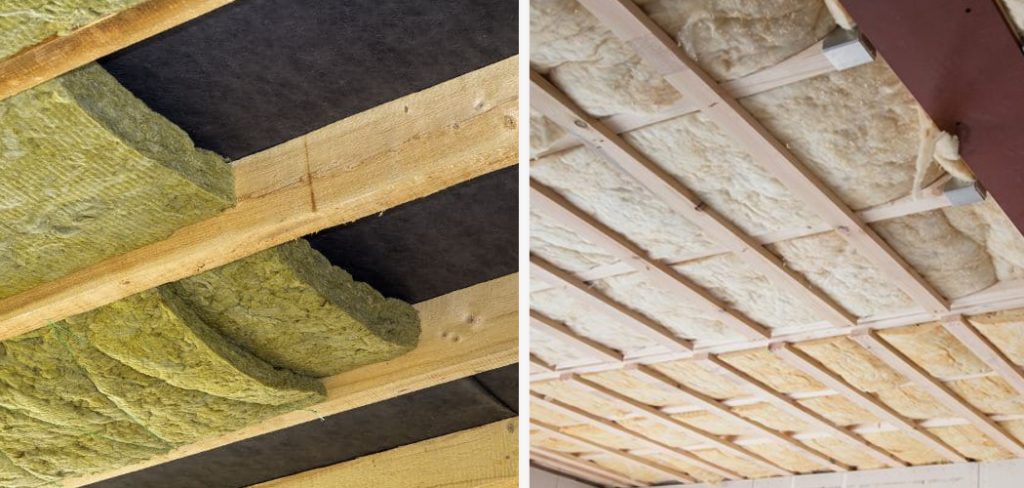
Why is It Important to Reduce Noise in the Basement Ceiling?
1 . To Avoid Disturbances
Nobody likes to be disturbed, especially when trying to relax at home. If you have a finished basement or use it as a living space, noise coming from the ceiling can be quite distracting and annoying. By reducing noise in the basement ceiling, you can create a more peaceful and quiet environment in your home.
2 . To Improve Sleep Quality
For those who have a bedroom in the basement, noise from the ceiling can greatly affect their sleep quality. This is especially true for light sleepers or those sensitive to noise. By reducing noise in the basement ceiling, you can improve your sleep quality and get a better night’s rest.
3 . To Increase Privacy
If you use your basement as a separate living space or rent it out, noise from the ceiling can greatly affect your privacy. By reducing noise, you can create a more private environment in your basement and avoid any disturbances from those living above.
4 . To Create a Better Living Space
Whether you use your basement as an office, gym, or entertainment area, excessive noise can make it difficult to focus or enjoy your time there. By reducing noise in the basement ceiling, you can create a more comfortable and functional living space.
5 . To Increase Resale Value
If you plan on selling your home in the future, having a quiet and peaceful basement can be a major selling point for potential buyers. By reducing noise in the basement ceiling, you not only improve your quality of life but also increase the value of your home. This can be especially appealing to buyers who are looking for a separate living space or have young children.

12 Tips on How to Reduce Noise in Basement Ceiling
1 . Install Insulation
One of the most effective ways to reduce noise in the basement ceiling is by installing insulation between the floor joists. This will help to block sound from traveling between the floors and can also help with energy efficiency.
2. Use Soundproofing Materials
In addition to insulation, various soundproofing materials can be used in the basement ceiling. These include acoustic panels, mass-loaded vinyl, and sound-absorbing mats. These materials work by absorbing or blocking sound waves, reducing noise in the ceiling.
3. Seal Cracks and Gaps
Small cracks and gaps in the basement ceiling can allow sound to travel through, so it’s important to seal them up. Use caulk or weather stripping to fill any openings around pipes, vents, or electrical outlets.
4. Add Carpet or Rugs
If your basement floor is made of hard materials like concrete or tile, adding carpet or rugs can help to absorb sound and reduce noise in the ceiling. Opt for thicker carpets with padding for better sound absorption.

5. Hang Curtains
Hanging heavy curtains on basement windows can also help to reduce noise from outside sources. The thick fabric will act as a barrier and block some of the sound waves from entering the basement.
6. Use Soundproofing Paint
Soundproofing paint is another option for reducing noise in the basement ceiling. This type of paint contains sound-absorbing materials that can help to deaden sound and reduce noise levels. Also, make sure to use multiple coats for maximum effectiveness.
7. Install Soundproofing Drywall
For a more permanent solution, consider installing soundproofing drywall in the basement ceiling. This type of drywall has a higher density and is designed to absorb or block sound waves. This will help to reduce noise transmission between the floors.
8. Opt for Solid-Core Doors
If your basement has rooms with doors, consider replacing them with solid-core doors. These doors are thicker and denser than hollow-core doors, making them more effective at blocking sound. Also, make sure to seal any gaps around the doors with weather stripping.
9. Add Soundproofing Mats or Rugs on the Stairs
If your basement has stairs leading up to the main floor, adding soundproofing mats or rugs on them can help to reduce noise. These materials will absorb some of the sounds created when people walk on the stairs, preventing them from traveling to the ceiling.
10. Use White Noise Machines
For areas in the basement where noise reduction methods may not be effective, such as open stairwells or unfinished areas, consider using white noise machines. These devices emit a constant sound that can help to mask other noises and reduce overall noise levels in the basement.

11. Regularly Maintain HVAC System
A noisy heating, ventilation, and air conditioning (HVAC) system can contribute to noise in the basement ceiling. Make sure to regularly maintain and clean your HVAC system to reduce any unnecessary noise.
12. Talk to a Professional
If you have tried various methods but are still struggling with noise in your basement ceiling, it may be time to consult a professional. A contractor or acoustic specialist can assess your space and provide recommendations for reducing noise that is specific to your basement.
So, by following these tips, you can effectively reduce noise in your basement ceiling and create a more peaceful living space. Remember to use a combination of methods for the best results, and don’t hesitate to seek professional help if needed.
Frequently Asked Questions
What Precautions Can I Take to Reduce Noise in My Basement Ceiling?
There are a few things you can do to reduce noise in your basement ceiling. Here are some of the most effective precautions: Adding insulation between the ceiling joists can significantly reduce noise from above. It helps absorb sound waves and prevents them from traveling through the ceiling. Acoustic foam panels are another great option for reducing noise. They are lightweight and easy to install, making them perfect for DIY projects. Additionally, using soundproofing drywall or installing a drop ceiling can also help reduce noise in the basement ceiling.
What Are Some Common Sources of Noise in Basement Ceilings?
The most common source of noise in basement ceilings comes from foot traffic or loud activities such as playing music or exercising on the level above. Other sources of noise can include plumbing, HVAC systems, and appliances located in the upper levels of the house. If you have a finished basement, it’s important to also consider any sound-producing elements within that space, such as a home theater system or gaming consoles.
Can I Soundproof My Basement Ceiling Without Spending a Lot of Money?
Yes, there are plenty of affordable options for soundproofing your basement ceiling. As mentioned before, installing insulation and acoustic foam panels are relatively inexpensive ways to reduce noise. You can also try adding area rugs or carpeting to the floor above the basement, as this will help absorb some of the sound before it reaches the ceiling. Another cost-effective solution is using weatherstripping or draft stoppers to seal any gaps around doors and windows, preventing outside noise from entering your basement.
Are There Any Long-Term Solutions for Reducing Noise in Basement Ceilings?
If you want a more permanent solution for reducing noise in your basement ceiling, consider adding a soundproofing underlayment beneath the flooring on the upper level. This will not only help reduce noise transmission to the basement, but it will also provide added insulation and improve overall energy efficiency in your home. Another long-term solution is installing resilient channel or soundproof drywall on the ceiling joists of your basement. These methods may require professional installation, but they can significantly decrease noise levels from above.
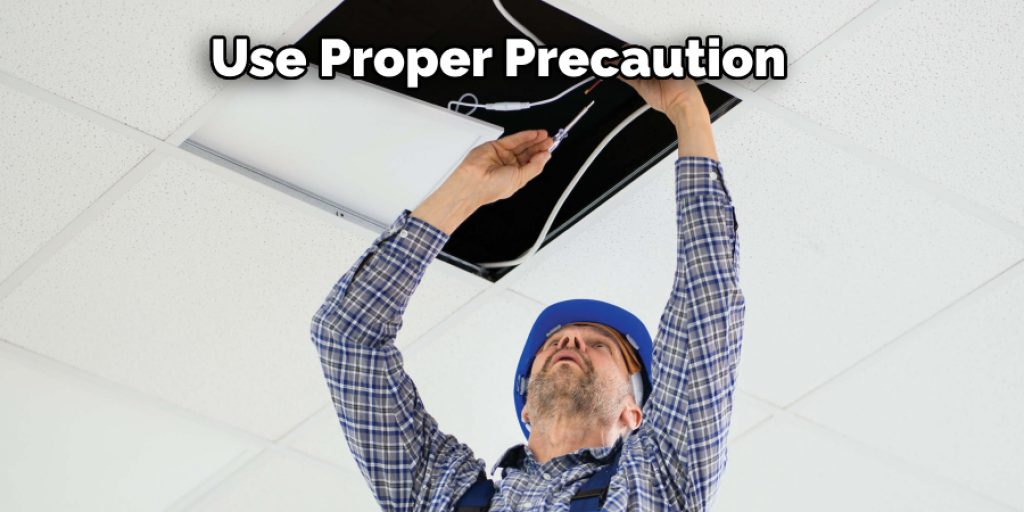
Conclusion
In conclusion, noise in a basement ceiling can be reduced if one follows the steps outlined here: insulating, installing acoustic tiles, soundproofing walls, and padding a floor. Through these steps, you can achieve a peaceful environment without the distraction or nuisance of too much sound. Remember that it’s important to always use proper precaution when working on ceilings and insulation projects such as wearing protective equipment like eyewear and gloves.
Now you know how to reduce noise in basement ceiling! Taking some of these preventive measures now will save you time and money in the long run because you won’t have to replace costly items due to lack of maintenance. Finally, think creatively while implementing these solutions — there may be quieter methods than the ones we have discussed here that are also achievable within your budget!

